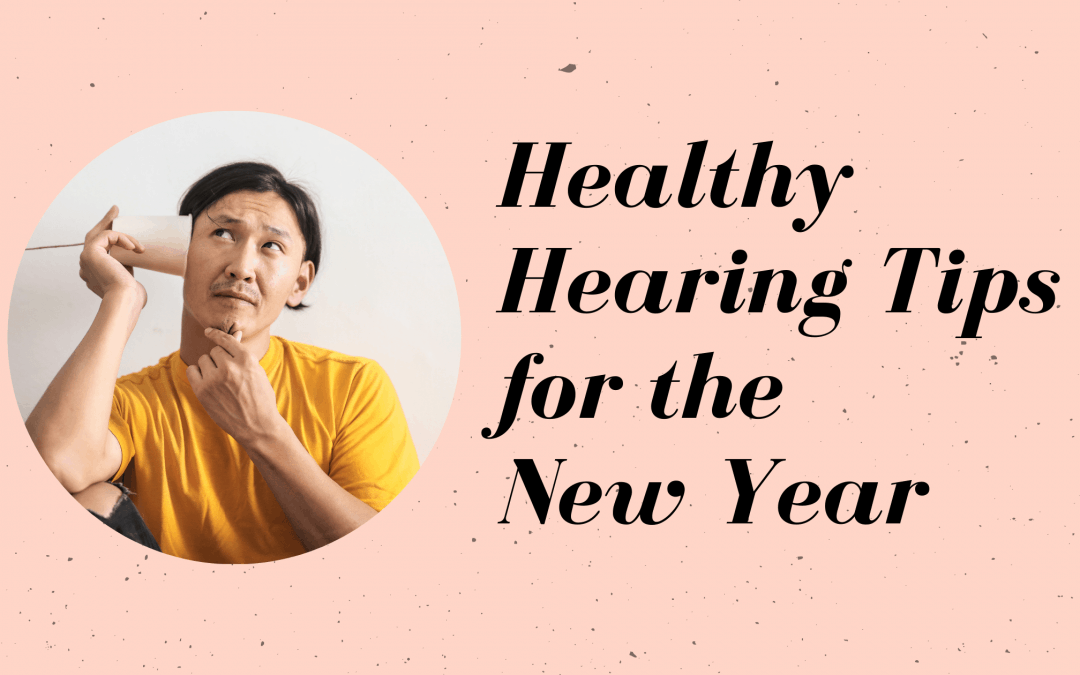Hearing health is such an integral, and often overlooked, component of overall wellness. The sense of hearing is a critical way we navigate and understand daily life, so when it is impaired, the effects can be significant. Hearing loss is the third most common chronic medical condition that people experience. Impacting nearly 1 in 5 people (of all ages), hearing loss is a pervasive health concern that is typically unnoticed. When hearing is impaired, communication is strained which impacts relationships, job performance, social life, and health. It is important to prioritize hearing health to reduce risk of impairment and to enhance overall health!
How Hearing Works
The auditory system facilitates hearing and consists of a complex network of organs, tissues, and cells that absorb and process sound. This includes:
- Outer ear: consists of the most visible part of the ear (outer cartilage, ear canal, and ear drum.
- Middle ear: houses the ossicles – three connected bones that are among the smallest in the body.
- Inner ear: contains the cochlea which is filled with fluid and hair cells.
The outer ear collects sound from the environment and the soundwaves travel through the ear canal before landing on the eardrum. This activates the ossicles which work to amplify and further push the soundwaves into the inner ear. The fluid and hair cells in the cochlea then help translate the soundwaves into electrical signals which travel through auditory pathways to the brain. The brain further processes the sound and assigns meaning which allows us to understand what we hear.
When any part of this process is disrupted it causes hearing loss. The most typical form of hearing loss results from damage of the hair cells in the inner ear. These hair cells do not regenerate which means that when they lose sensitivity (can be caused by loud noise or injury) and/or die, this damage is permanent.
Tips for Healthy Hearing
There are numerous ways you can take care of your hearing health including the following:
- Wear Protective Gear: including earplugs, earmuffs, and headphones which serve as a barrier; minimizing the impact of loud noise. This kind of protective wear reduces the amount of sound you absorb and should be used when navigating loud environments – concert venues, work settings, commutes, airplanes etc.
- Low Volume Settings: it is important to maintain low volume settings on the electronic devices you regularly use – smartphone, speaker, laptop etc. You can measure sound by downloading an app that actually measures decibels. Sound above 85dB is considered potentially harmful for hearing health.
- Reduce Exposure to Loud Noise: in addition to wearing protective gear and lowering volume, be proactive about reducing your exposure to loud noise which is a common cause of hearing loss. This could include avoiding loud settings and opting for quieter environments (restaurants, bars etc.), rolling up windows if driving, taking alternate routes to avoid constriction sites or other loud sources of noise etc.
- Noise Cancellation Headphones: another great way to reduce the impact of loud noise is to invest in noise cancelling headphones! This technology is designed to reduce background noise, preventing you from having to increase the volume on headphones while in noisier settings. This allows you to listen at safe audio levels.
- Maintain Ear Hygiene: accumulation of bacteria can cause irritation in the ear canal and/or ear infections which impact hearing capacity. The ears have their own natural process of self-cleaning but if you experience earwax buildup, be sure to safely remove it. Experts do not recommend using cotton swabs as this can easily push earwax further into the ear. More effective strategies include rinsing the ears with a simple saline solution.
- Get Hearing Tested: have annual screenings for physical health, it is also important to have your hearing regularly assessed. Hearing tests involve a noninvasive and painless process that identifies any impairment and the degree of hearing loss you may be experiencing. This is a great way to establish and treat your hearing needs. Early detection and intervention can prevent impairment from worsening and helps you transition to better hearing health with greater ease.
Hearing health contributes to enhanced living and wellness. It is important to not only be mindful but to actively practice safety measures that protect your hearing health! Another part of protecting your hearing health is to have an annual hearing test. This ensures you are kept abreast of your hearing abilities and can monitor any changes over the years. To schedule a hearing consultation, contact us today!

